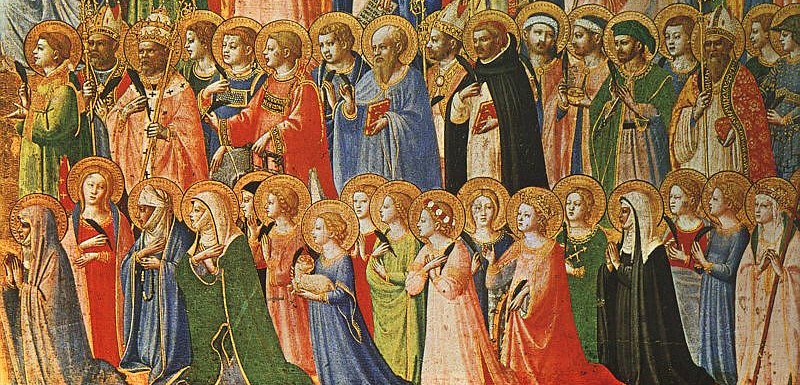The Proper of Saints
National Liturgical Council

As it celebrates the mystery of Christ in yearly cycle, the Church also venerates with a particular love Mary, the Mother of God, and sets before the devotion of the faithful the memory of the martyrs and other saints (GNLY 8).
During the second century those members of the Church who had died as martyrs were remembered on the day of their death since this was celebrated as their birth into eternity. Even those who were not martyred but had confessed their faith in Christ to the point of death were remembered as confessors of the faith, again on the day of death.
These days of remembrance were the beginning of the daily celebration of Eucharist as we know it. Over the centuries other categories of holiness were added such as doctors of the Church, holy men and women. This has created what we call the sanctoral cycle (from the Latin word for ‘holy’).
In the General Calendar the entire cycle of celebrations is entered: celebrations of the mystery of salvation as found in the Proper of the Seasons, of those saints having universal significance who must therefore be celebrated by everyone or of saints who show the universality and continuity of holiness within the people of God (GNLY 49).
Some saints are celebrated by the universal Church, such as apostles. Others are for a local area such as Mary MacKillop in Australasia. The purpose of the sanctoral cycle is to place before the Christian community models of those who have truly followed Christ in an exceptional way. Particular celebrations of Christ and Mary such as the Annunciation of the Lord are part of this cycle.
The more important saints, such as apostles are classed as feast days while most are celebrated as memorials. Those of least universal significance are optional memorials.
The General Norms for the Liturgical Year delineate solemnities, feasts, memorials and optional memorials and indicate readings or other changes to the Mass of the day.
Image Attribution - The Forerunners of Christ with Saints and Martyrs, Fra Angelico, Fiesole San Domenico Altarpiece
